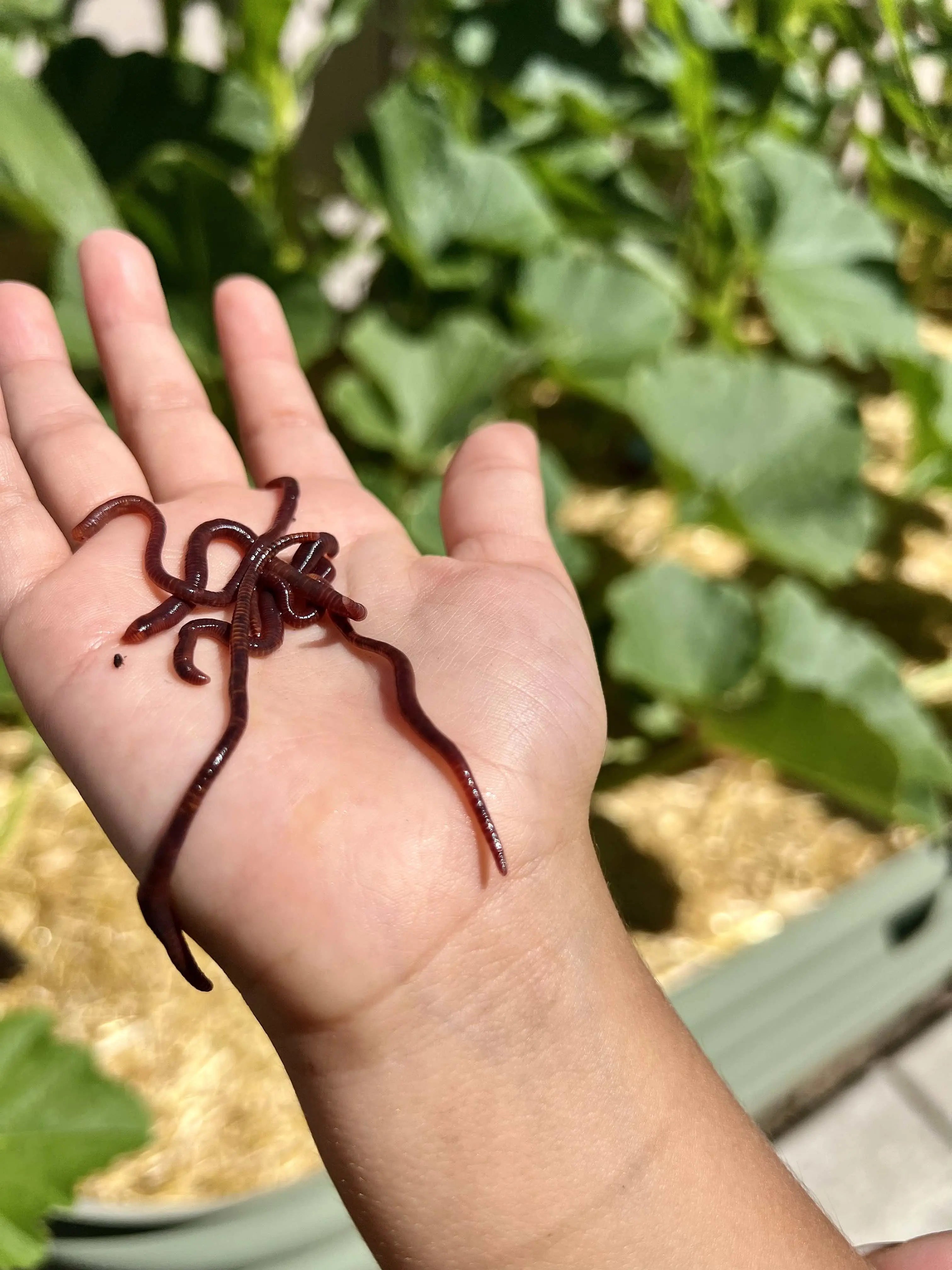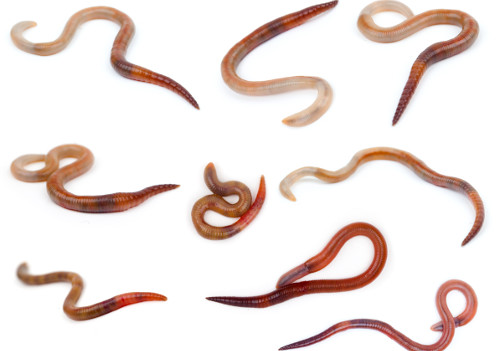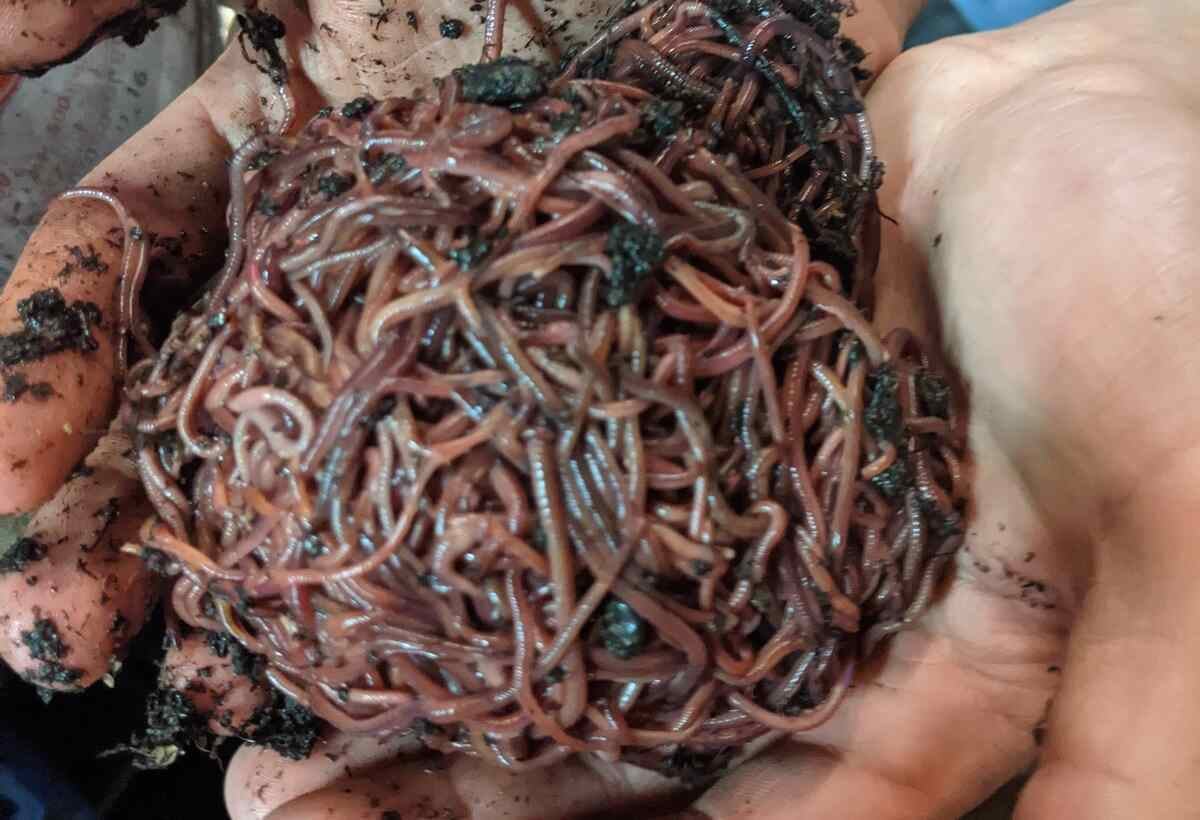Red Wiggler Worms - Reliable Decomposers for Your Garden Compost Bin
Red Wiggler Worms - Reliable Decomposers for Your Garden Compost Bin
Blog Article
Red Wiggler Worms Demystified: Unlocking the Tricks of Vermiculture for Greener Living and Nutrient-Rich Dirt
In the realm of sustainable methods for improving soil quality and advertising eco-conscious living, red wiggler worms play a critical yet usually forgotten role. These simple animals have the exceptional ability to transform natural waste right into nutrient-rich castings that act as a potent all-natural plant food. By delving right into the globe of vermiculture, one can discover a variety of benefits that extend much past standard composting methods. Understanding the intricacies of caring for these worms, enhancing their environment, and harnessing their spreadings can lead to a greener lifestyle and much healthier soil for plants to flourish.
The Duty of Red Wiggler Worms
Red Wiggler worms play an important duty in composting systems by successfully damaging down organic matter right into nutrient-rich spreadings. These starved eaters consume a selection of organic products, such as kitchen scraps, backyard waste, and paper items. As they feed, the worms' digestion processes break down the raw material right into a fine, dark, and nutrient-dense product called worm spreadings or vermicompost.
The castings produced by Red Wiggler worms are very valuable for dirt wellness and plant growth. They are abundant in vital nutrients like nitrogen, potassium, and phosphorus, which are essential for supporting healthy plant growth. Additionally, worm spreadings contain advantageous microorganisms and enzymes that aid enhance soil structure, boost water retention, and improve nutrient uptake by plants.
Benefits of Vermicomposting

In addition, vermicompost, the nutrient-rich output of vermicomposting, works as an outstanding natural fertilizer and dirt conditioner. It enhances soil framework, improves dirt oygenation, and enhances soil dampness retention. These properties contribute to healthier plants with stronger root systems and far better resistance to pests and diseases. Vermicompost likewise enriches the soil with necessary nutrients like nitrogen, potassium, and phosphorus, advertising plant growth and overall soil fertility.
Furthermore, vermicomposting supports sustainable horticulture techniques by giving a all-natural and chemical-free alternative to synthetic plant foods. Red Wiggler Worms. This environmentally pleasant strategy not just enriches the dirt yet additionally helps in reducing dependence on harmful chemicals, advertising a greener and more lasting way of horticulture
Setting Up a Worm Container
When developing a worm container for vermicomposting, correct configuration is crucial to guarantee the success of the composting process. The first action try this in establishing up a worm container is selecting a suitable container.
After including the bed linen, present the red wiggler worms to the container. The worms should after that be offered with food scraps such as fruit and veggie peels, coffee premises, and eggshells.
Routinely monitor the moisture levels and temperature level in the worm container to guarantee optimum problems for the worms. With proper arrangement and upkeep, the worm bin will properly convert natural waste into nutrient-rich compost for your plants and yard.
Gathering Worm Castings
To successfully accumulate nutrient-rich worm castings from your vermicomposting system, an organized harvesting approach is vital. When it comes time to harvest the worm spreadings, there are a few essential actions to follow to make certain an effective procedure. First of all, stop adding fresh food scraps away of the worm bin for a pair of weeks before collecting. This sites urges the worms to move to the side with fresh bed linens and food, making it much easier to scoop out the castings from the opposite.

Troubleshooting Common Issues
Recognizing and addressing common challenges that may emerge during the vermicomposting procedure is critical for maintaining a efficient and healthy and balanced worm bin. One usual problem that vermicomposters experience is overfeeding. Including excess food scraps can bring about an accumulation of dampness and acidity in the worm bin, potentially harming the worms. To prevent this, feed the worms in small amounts, ensuring that the food scraps are effectively damaged down before including much more. One more problem is unpleasant odors originating from the worm bin. Foul scents show anaerobic problems, generally caused by overwatering or insufficient air flow. To correct this, adjust the moisture levels by adding dry bed linens materials like shredded newspaper or cardboard and rise oygenation by turning the bed linens on a regular basis.
Additionally, if the worm population is declining or the worms appear undesirable, it could be as a result of environmental stress factors such as severe temperatures or pH degrees. Checking these elements and making necessary changes is vital for the well-being of the worms. By repairing these typical issues immediately, vermicomposters can guarantee a smooth and effective vermicomposting process while preserving a flourishing worm population.

Final Thought
In Read Full Article conclusion, red wiggler worms play an essential role in vermiculture by damaging down natural matter into nutrient-rich dirt. Setting up a worm container is important for effective vermiculture, and collecting worm spreadings supplies useful garden compost for horticulture.
As they feed, the worms' gastrointestinal procedures damage down the organic matter into a penalty, dark, and nutrient-dense product understood as worm castings or vermicompost.
The castings created by Red Wiggler worms are extremely useful for soil health and wellness and plant development. Adding excess food scraps can lead to an accumulation of dampness and level of acidity in the worm bin, possibly hurting the worms.Furthermore, if the worm population is decreasing or the worms appear harmful, it could be due to ecological stressors such as extreme temperatures or pH levels. Setting up a worm bin is essential for successful vermiculture, and collecting worm castings supplies useful compost for gardening.
Report this page